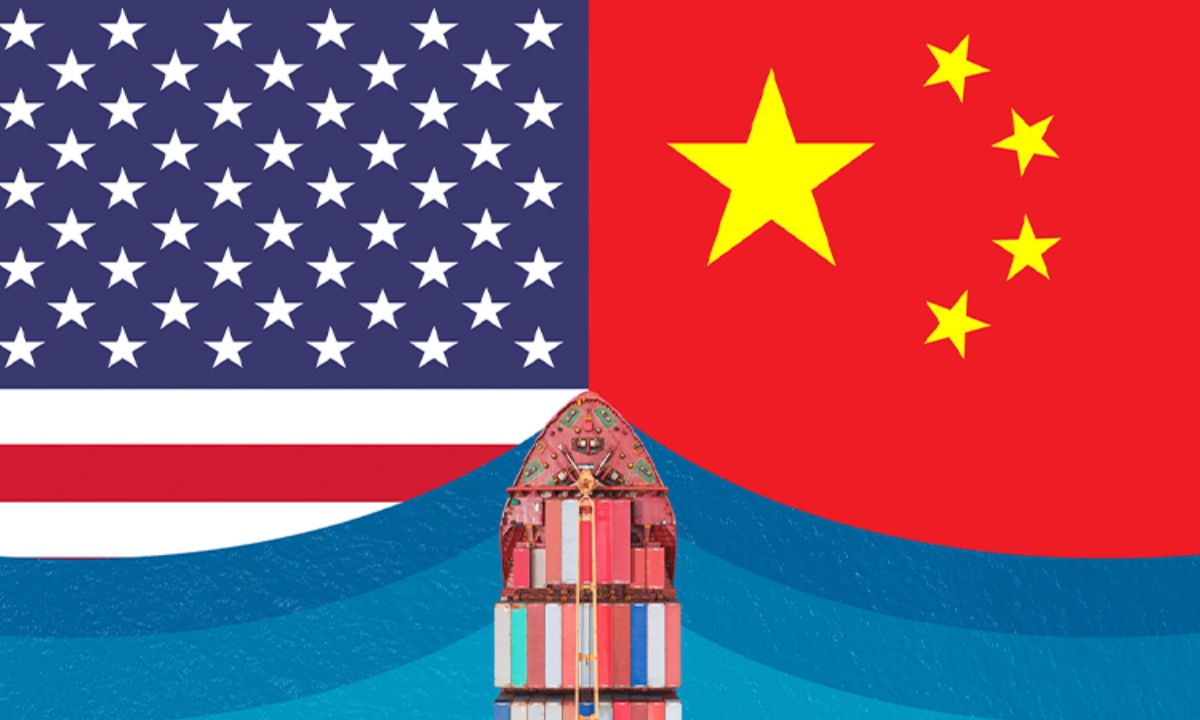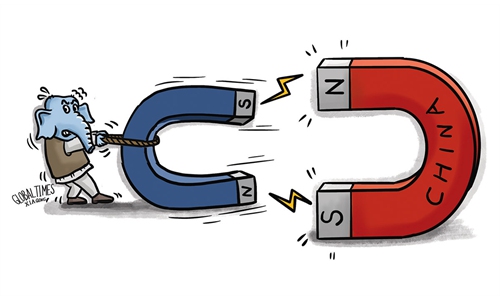
Photo: GT
While the China-US relations may be fraught with complexities and challenges, non-governmental commercial exchanges between the two countries continue to demonstrate remarkable vitality. These economic interactions serve as a vital foundation for fostering mutual understanding and cooperation, ultimately contributing to the development and stability of bilateral relations.At the 24th China International Fair for Investment and Trade (CIFIT) held this week, Harley Seyedin, president of the American Chamber of Commerce in South China, said he is confident in China's economic growth and continued investment from member enterprises, the Xinhua News Agency reported on Wednesday.
Over the past two decades, the chamber's delegations have averaged $1 to $2 billion each year in new contract signings at the CIFIT. The consistent participation of the chamber serves as a powerful testament to the vitality and resilience of non-governmental commercial interactions between China and the US.
This situation also shows that the CIFIT stands as a prominent platform that not only showcases China's unwavering commitment to opening its doors to the global market but also vividly illustrates the dynamic commercial exchanges between the peoples of China and the US.
Such exchanges infuse energy into the economic development of both countries and provide a crucial driving force in fostering the stable advancement of bilateral relations.
American investors continue to express a strong interest in expanding their investments in China, a sentiment that remains steadfast despite Washington's protectionist policies that have altered the geopolitical landscape.
While these changes have understandably raised concerns among investors, it is crucial to recognize that such concerns are not rooted in the fundamentals of the Chinese economy itself. Instead, they are largely influenced by the hype surrounding the so-called "China threat" narrative by some political forces. This narrative may amplify investor anxiety, but it does not diminish the real appeal of the Chinese market.
The potential for growth, the dynamism of the economy, and the opportunities for profitability remain robust and compelling. These enduring characteristics continue to attract American investors, who recognize that the Chinese market offers a wealth of opportunities that are too significant to overlook, even in the face of geopolitical uncertainties.
This is also why economic and trade cooperation remains an important part of the bilateral relationship even amid a backdrop of geopolitical challenges. The appeal of the expansive Chinese market, coupled with the relative stability of China-US economic and trade relations, serves as a vital engine driving commercial exchanges between the two nations. In the context of the current complexities characterizing China-US relations, showcasing this vitality and potential becomes increasingly crucial when it comes to pushing forward the development of bilateral relations.
More importantly, China's steadfast commitment to further expanding its openness to the global market sends an unequivocal signal to international investors: the opportunities within the Chinese market are real and tangible. In a concerted effort to attract more foreign investment, the Chinese government has consistently introduced a range of policies aimed at creating a more favorable investment climate.
Notably, the government has been actively shortening the negative list for foreign investment, easing barriers to entry in key industries such as healthcare and telecommunications.
Further, it has completely lifted restrictions on foreign investment in the manufacturing sector. In addition to these measures, authorities have been working to simplify administrative procedures for foreign companies, making it easier for them to navigate the regulatory landscape. Collectively, these measures underscore China's unwavering determination to enhance openness.
Regardless of the extent to which the US enforces stricter controls on investments in China, it is unlikely to impede China's commitment to openness. The Chinese market will continue to open at its own pace. The benefits of engaging with the Chinese market are evident and substantial enough for American investors to find their own path to navigate political risks and invest in this promising market.



